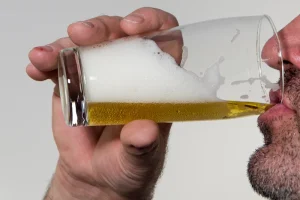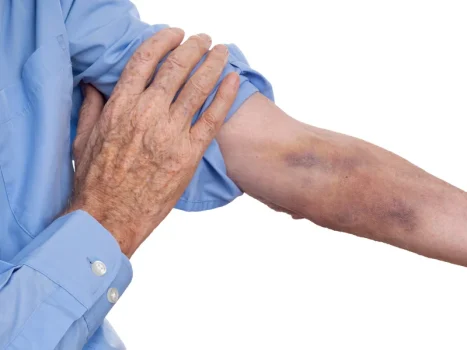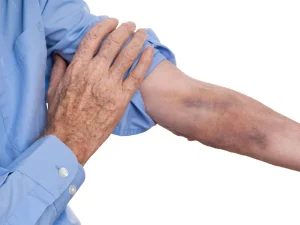Why Are You Sweating after Drinking Alcohol? New Health Advisor

When your blood pressure increases, your heart has to work harder to push blood out to the rest of the body. Drinking a lot of alcohol can affect the muscles in your blood vessels, and it causes them to constrict and become narrower, which increases blood pressure (a.k.a. hypertension). Alcohol has various effects on the body that can lead to excessive sweating. As for drinking more generally, having the occasional social drink is usually nothing to be concerned about. However, if you find yourself drinking often enough that sweating from alcohol is a common issue, it may be worth cutting back on how much you consume.
- This causes heart rate to increase and blood vessels to widen, leading to sweating and other uncomfortable and potentially dangerous symptoms.
- Alcohol and its byproducts cause the body’s blood vessels to dilate (which can increase the amount of flushing the person experiences as well).
- Complete the form below and we will complete your insurance verification and get back with you shortly.
- However, if you find yourself drinking often enough that sweating from alcohol is a common issue, it may be worth cutting back on how much you consume.
- There is no direct health threat from either of these sweating episodes, but the sweat and flushness can be uncomfortable.
Alcohol intolerance
Alcohol-related liver disease also does not usually cause symptoms until the liver is severely damaged. Night sweats are often self-limiting and not a cause for medical intervention. However, if they persist, recur, or happen alongside other symptoms, help may be necessary.

Is It Dangerous To Get Hot When You Drink Alcohol?
- You’re supposed to meet up with friends for dinner and go out later, but you’re already feeling a drink, or two, past buzzed.
- After detox, transitioning to a residential treatment program can offer comprehensive support for recovering from alcohol addiction.
- Alcoholic beverages may contain a lot of sugar and this causes a sudden increase in blood sugar levels.
The intensity peaks around hours as your body rids itself of the toxins. Heavy, long-term alcohol use leads to physical and psychological does drinking make you sweat dependence. For some, even having one glass of wine or pint of beer can cause flushing in the face, and the more the person drinks, the redder their skin becomes. You might also sweat after drinking due to having an intolerance to alcohol. Having an alcohol intolerance is a genetic condition where your body isn’t able to produce the enzymes it needs to break down toxins in alcohol. The effects are similar to that of the medication Antabuse (disulfiram), which is often used to treat alcohol addiction.

Tips for Managing Alcohol Sweats
- Night sweating often presents as paroxysmal sweating—or sweating that comes and goes.1 Paroxysmal sweats may come and go.
- Regaining your health allows you to rebuild your life, free from addiction’s chains.
- Interrupted sleep like this is hardly restful, and it can be dangerous.
- Alcohol night sweats refer to the occurrence of excessive sweating during the night, often affecting the face, chest, back, and arms.
- Like all other food and drinks, alcohol is metabolized after being ingested and absorbed in the intestines.
- After you make a plan with a medical provider to stop drinking alcohol safely, the brain and body will regain their natural balance over time, and withdrawal symptoms will decrease.
Alcohol intolerance is an inability to break down alcohol properly. People with alcohol intolerance lack the enzyme, Aldehyde dehydrogenase (ALDH2), which people use to digest alcohol. If you’ve come home Sober living house after a night of binge drinking and start sweating in your sleep, this can be attributed to any of the causes of sweating while drinking.

Understanding Alcohol Sweats and Withdrawal Symptoms
During the first stage of alcohol detox, the body adjusts to being without alcohol after consistent use. Excessive sweating is one of the initial withdrawal symptoms along with insomnia, nausea and tremors as the body physiologically reacts to stopping alcohol consumption. Every person will have a unique experience when going through alcohol withdrawal. The symptoms you https://ecosoberhouse.com/ experience, the severity and the risk they pose to you will depend on your personal history and your physical and mental health. Usually, sweating is no more than an unsightly (and smelly) effect of drinking.

Night sweats from alcohol occur for many of the same reasons you might sweat while drinking. But these are not the only ways alcohol contributes to sweating; post-drinking effects also lead to sweating. One of the many things it does to your brain is stimulate the hypothalamus, which is responsible for body temperature, breathing, thirst, and hunger. However, there are more serious effects of drinking, for which sweating can be a symptom. If you drink heavily and often, you may sweat for no reason other than constantly trying to metabolize and rid your body of copious amounts of alcohol.

